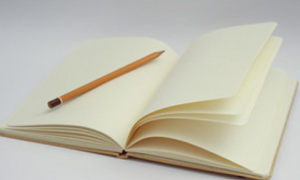内容简介:
Roy 买了一件新毛衣,同事佳莹将这件毛衣形容为 “niceish”。这里,佳莹到底是不是在说毛衣很 “nice(好看)”?在数字后面加 “-ish” 是什么意思?听两个人的对话,学习后缀 “-ish” 在口语中的含义和用法。
Roy
And hello, I’m Roy. Hey, Jiaying, I’ve just bought this new animal jumper! What do you think? It’s got a sparkly unicorn on it!
Jiaying
Well, it certainly is colourful! And you clearly love it. I’m not sure I’d wear it, but it’s nice… ish.
Roy
Nice fish? What are you talking about? It’s a stunning unicorn, not a nice fish!
Jiaying
不是的,Roy。我说的是 “niceish”。在英语口语中,人们可能会在部分形容词后加上后缀 “-ish, I S H”,用来表示 “有点……”,“……左右”。有时,我们可以单独使用 “ish”,通常用来回应他人在上文中说过的话。So, when I said ‘niceish’ – I meant to say that your jumper is OK, but not exactly nice.
Roy
Wait – so you don’t like my jumper? Do you think it looks a bit unprofessional?
Jiaying
Ish!
Roy
Oh, no! I think I need to go and change. I have a big meeting later on. I’m going to buy a new jumper.
Jiaying
Let’s listen to some examples of ‘ish’ while you buy a jumper.
Examples
I didn’t love the film, but it was goodish. It was OK.
When she asked me if I was OK, I just said ‘ish’. I think she knows I’m not happy.
I might be a little late to the meeting, but I should arrive by about 5ish.
Jiaying
你正在收听的是 BBC英语教学的 “地道英语” 节目。我们正在讨论后缀 “-ish”,在非正式口语中,我们可以把它放在一些形容词的后面,意思是 “有点……”,“……左右”。它也可以单独使用,通常用来回答他人的问题。另外,“-ish” 也可以用在表示时间、年龄等的数字后面,意思是 “大约,左右”。
Roy
So, I bought a new jumper. This one has a beaver playing a ukulele on it! Do you think this one is better?
Jiaying
Ish. At the end of the day, it doesn’t matter whether I like your jumper or not. What’s important is that you like it.
Roy
Well, I love it. But I think I might change into my suit for that meeting. I want to make a good impression with the new boss.
Jiaying
That’s a good idea!
Roy
Yeah – I’ll get changed now. Can you tell everyone I’ll be lateish – but I should get to the meeting by 1ish.
Jiaying
I sure will! Bye, Roy.
Roy







